FNH Has the First Junior to Shoot on an Industry Team at the FMG Shooting Industry Masters
Posted by Junior Shooters
I was incredibly excited to hear that FNH (Fabrique Nationale Herstal) wanted a junior on their team at the 2010 FMG (Firearms Marketing Group) Shooting Industry Masters. I test products and write for Junior Shooters magazine. Andy Fink, Editor-In-Chief, told me that FNH wanted me to shoot with them on their pro team.
(Top right photo: Corey, front right, with FNH USA’s Pro Team: Back left: Tommy Thacker, back middle: Tasha Hanish, Back right: Mark Hanish, front left: Dianna Liedorff. Corey is holding the FNH SLP competition shotgun the FNH USA team used in sporting clays.)
I was so thrilled that I almost drove the car into the ditch. I am 17 years old and have been shooting USPSA (United States Practical Shooting Association) and steel challenge for just over a year now, so this was one very awesome opportunity.
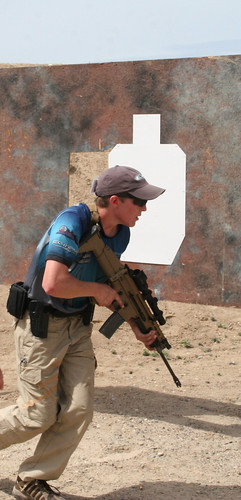 I have known Andy for a while now. When he told me that he was putting a group of juniors together to shoot the MGM Ironman this past July, the toughest modern three-gun competition in the country, of course I said I wanted to shoot it, too. Andy told me that FNH USA agreed to sponsor Junior Shooters magazine by providing firearms for some of the juniors to shoot in the MGM Ironman.
I have known Andy for a while now. When he told me that he was putting a group of juniors together to shoot the MGM Ironman this past July, the toughest modern three-gun competition in the country, of course I said I wanted to shoot it, too. Andy told me that FNH USA agreed to sponsor Junior Shooters magazine by providing firearms for some of the juniors to shoot in the MGM Ironman.
(Left: Corey on the move on stage 6 of the MGM Ironman 2010. He is using a FNH SCAR .223 with a Swarovski 1 X 6 scope. Below: Corey shooting slugs out of his FNH SLP shotgun on stage 9 of the MGM Ironman.)
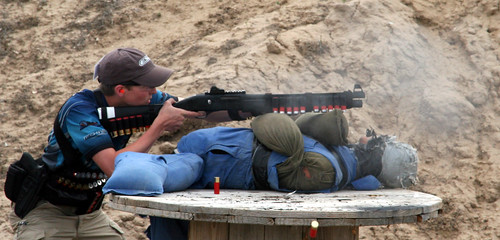 Fabrique National is a Belgium firm created in 1889 that produces some of the best small arms for military and sporting users worldwide. Andy was really excited about them sponsoring Junior Shooters magazine as they are the only company that manufacture all four firearms used in modern three-gun competition: semi-auto rifle, pistol, shotgun, and the long–range, bolt-action rifle. Andy had selected me to shoot all four firearms in the MGM Ironman. After the Ironman was over, FNH talked to Andy and told him that they wanted a junior on their shooting team at the Shooting Industry Masters.
Fabrique National is a Belgium firm created in 1889 that produces some of the best small arms for military and sporting users worldwide. Andy was really excited about them sponsoring Junior Shooters magazine as they are the only company that manufacture all four firearms used in modern three-gun competition: semi-auto rifle, pistol, shotgun, and the long–range, bolt-action rifle. Andy had selected me to shoot all four firearms in the MGM Ironman. After the Ironman was over, FNH talked to Andy and told him that they wanted a junior on their shooting team at the Shooting Industry Masters.
The Shooting Industry Masters is put on by FMG Publications who publish Guns, American Handgunner, Personal Defense, COP, and Shooting Industry. The Shooting Industry Masters is a large conference for manufacturers of firearms, ammunition, and accessories where the Academy of Excellence presents awards, and teams from the manufacturers compete in a three-gun shooting event. FMG Publications has a group of people called the Academy of Excellence who analyze each year’s products and vote on companies and people that have contributed the most to the shooting industry in the last year. Companies field teams made up of company personnel for the industry team, and both company and outside shooting pros for the pro team. They enjoy two days of shooting together and competing against all of the other teams.
The FNH teams consist of one industry team (employees,) and one pro team (professional shooters.) I was on the pro team, and I couldn’t believe that they wanted me on their pro team. Now that I’ve hung out with them for two days, I definitely feel like part of the team.
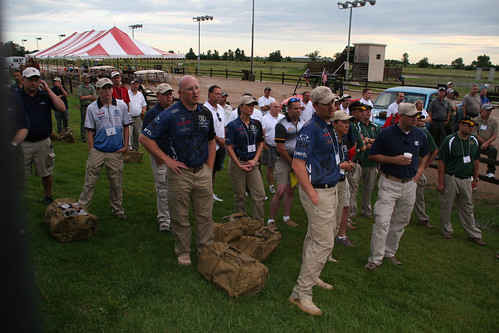
(Safety meeting: Corey in a white & blue FNH shirt & FNH hat to the left of some of the FNH team members in blue FNH shirts.)
The first day of the Shooting Industry Masters began at 7:00 at the Grand Island Shooting Park in Nebraska. The FNH USA pro and industry teams met in front of the clubhouse, where we signed our waivers and received name tags and product bags from the events many sponsors. We then had a safety briefing and shooter’s meeting. Finally, we grabbed our schedule and took off on FNH’s Polaris RZR to our first part of the event. The pro team went to shoot sporting clays while the industry team ran the FNH three-gun side match for the morning.
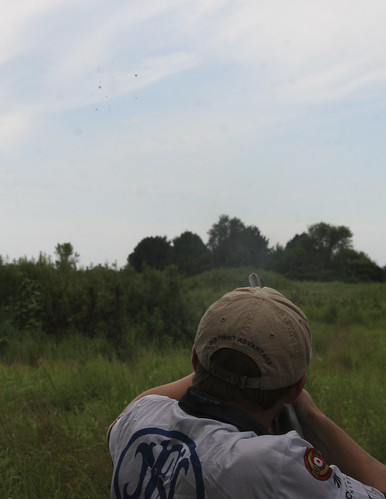 Sporting clays is a shooting sport where the shooter shoots from a stand and fires at birds (clays in the air) or rabbits (clays rolling across the ground). Birds or rabbits come from different directions to simulate actual hunting conditions. We started shooting at around 8:30 at stage five.
Sporting clays is a shooting sport where the shooter shoots from a stand and fires at birds (clays in the air) or rabbits (clays rolling across the ground). Birds or rabbits come from different directions to simulate actual hunting conditions. We started shooting at around 8:30 at stage five.
(Top: Corey getting his bird on stage 6 of the sporting clays round. Corey got 57 out of 100 birds for the round and had never shot sporting clays before. Right: Mark Hanish, FNH USA pro team had an excellent round of 87.)
The Grand Island Shooting Park has a sporting clays area where there are ten stations. You shoot ten shells at each station. It took around two hours to shoot all ten stages, and at the end I had hit 57 of 100 clays thrown. Not great, but I had never shot sporting clays before. I really enjoyed shooting sporting clays. My favorite shots were the rabbits. I wish there had been more. I shot the FNH SLP competition shotgun.
After completing the sporting clays event, the team went to the tent for lunch. Following lunch, the pro team headed over to the FNH three-gun side match. The side matches are mini three-gun, cowboy action, rifle, and shotgun events where the shooter buys a $5.00 ticket to get into the event. All the money from the side matches goes to the First Shot program run by the National Shooting Sports Foundation (NSSF.) The First Shot program is designed to promote and support ranges across the country that put on a First Shot event. These events are for the specific purpose of getting people out to shoot who have never shot a firearm.
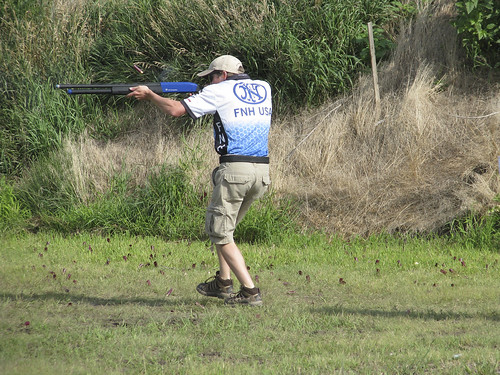 After lunch, we relieved the industry team at the FNH side match so that they could eat and shoot the same stages we had shot in the morning.
After lunch, we relieved the industry team at the FNH side match so that they could eat and shoot the same stages we had shot in the morning.
(Left: Corey shooting seven knock down targets in the second bay of the FNH 3-gun side match. He was using an FNH SLP competition shotgun.)
I thought it was great seeing so many people trying three-gun for the first time, and when they were done, they’d laugh about how they should have done this or that.
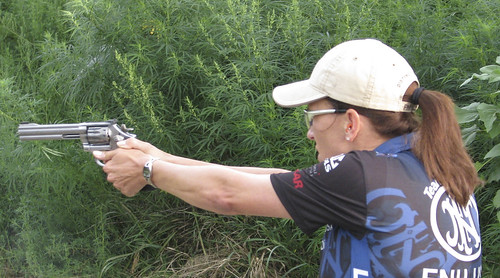 Saturday, the FNH team shot the two revolver matches and a .223 bolt-action gun match. The first revolver stage contained three ten-shot .22 Long Rifle Smith and Wesson revolvers. The guns were placed on three different tables.
Saturday, the FNH team shot the two revolver matches and a .223 bolt-action gun match. The first revolver stage contained three ten-shot .22 Long Rifle Smith and Wesson revolvers. The guns were placed on three different tables.
(Top right: Dianna Liedorff, FNH USA pro team, cleaned this stage with an excellent Time. Dianna won the Top Female shooter award for the whole match! Bottom left: Corey shooting the .22 revolver stage.)
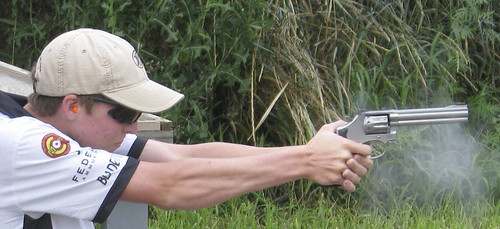 The objective of this stage was to shoot the first revolver twice at five steel targets while sitting in a seat. Then the shooter would jump out of their seat and run to the next table and pick up the gun and shoot the same targets from the standing position. You would then run to the next table and complete the same course of fire. I think the stage was really cool. I got to shoot 30 rounds out of a revolver without having to reload.
The objective of this stage was to shoot the first revolver twice at five steel targets while sitting in a seat. Then the shooter would jump out of their seat and run to the next table and pick up the gun and shoot the same targets from the standing position. You would then run to the next table and complete the same course of fire. I think the stage was really cool. I got to shoot 30 rounds out of a revolver without having to reload.
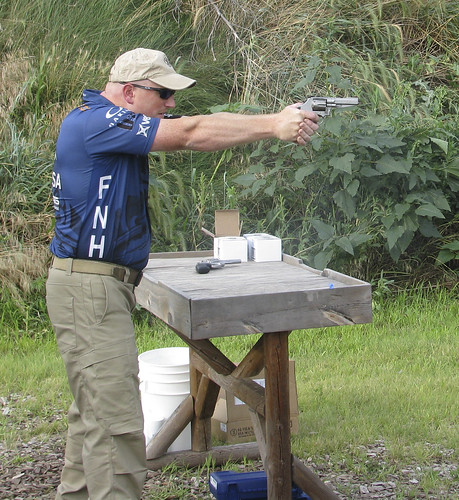 The next revolver stage was named “Wheel Guns are Real Guns”. I loved this stage. It was a flurry of fast shooting and precision.
The next revolver stage was named “Wheel Guns are Real Guns”. I loved this stage. It was a flurry of fast shooting and precision.
(Right: Tommy Thacker, FNH USA pro team, cleaned this stage with an excellent Time. Bottom left: Corey shooting the S&W .38 Special revolver stage.)
The course of fire required you to start with the .38 Special Smith and Wesson revolver in your hands while standing. You would shoot the six targets with one shot each, then ground the gun, and run to the next two tables and do the exact same thing.
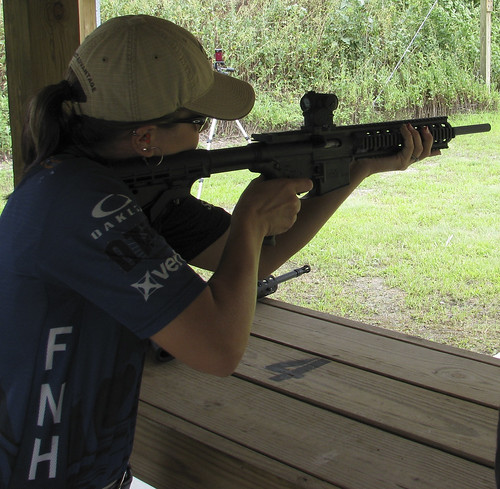
(Tasha Hanish, FNH pro team made every shot count with the S&W Model M&P 1522.)
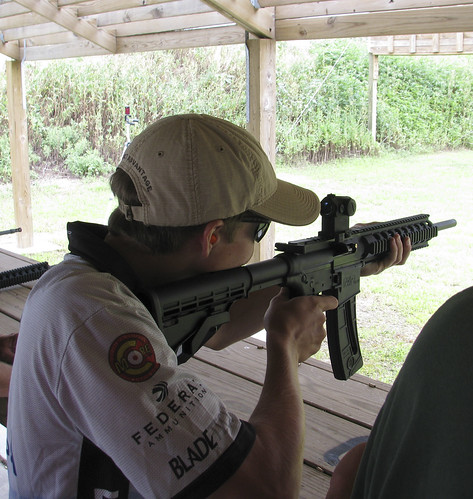 The third stage we shot Saturday was called “Rockn’ Rimfires”. The course description sounded something like: AR-Styled .22 rimfire rifles. Two strings of 10 rounds each at reactive steel plates at 25 yards from the off-hand position (standing unsupported).
The third stage we shot Saturday was called “Rockn’ Rimfires”. The course description sounded something like: AR-Styled .22 rimfire rifles. Two strings of 10 rounds each at reactive steel plates at 25 yards from the off-hand position (standing unsupported).
(Right: Corey rocked on the Rockn’ Rimfire stage.)
I enjoyed this stage because I blew it away. The rifle was a Smith and Wesson M&P 15-22 which weighs five–and–a–half pounds. Then they strap an awesome red dot scope on it. I shot the first string in around seven seconds clean – no misses. The next string I shot in six seconds and some change, clean.
(Top Tasha Hanish, FNH USA pro team, as she was practicing prior to her first round of four. Corey watched each of other member ons the pro team: Tasha, Tommy, Mark, and Dianna, shoot and operate the FNH bolt-action TSR-XP USA before he had to take his turn.)
The last stage we shot was named “Hunter’s Haven”. We used the FNH TSR-XP USA. It’s an extremely accurate .223 bolt gun with a short action. The course of fire was to shoot four strings of four shots at reactive steel placed at 100 yards as fast as you could.
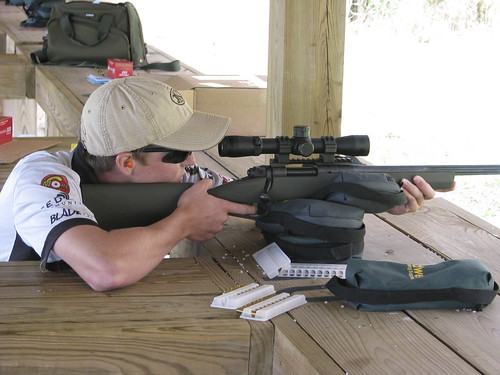
(Above: Corey did very well on the Hunter’s Haven stage shooting FNH’s TSR-XP .223 USA.)
I enjoyed this stage. I rarely get the chance to shoot a bolt-action rifle so this stage was just fun because I got to shoot an amazing one.
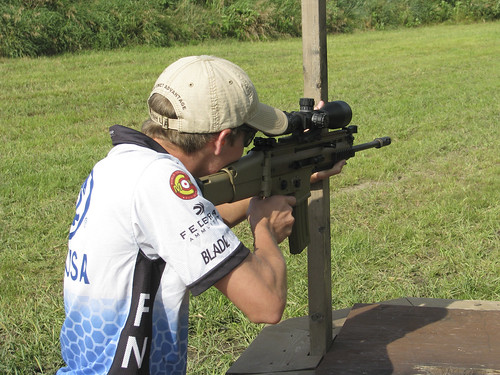 After those required stages, the team shot their own FNH three-gun side match. I had been working the FNH side match stage for two days, and it was finally my turn to take a shot at it. Just like everyone else, I started in the outhouse with the door closed sitting on a seat. When the buzzer sounded, I sprinted out the door to the wishing well where I picked up the FNH SCAR-16 mounted with a Weaver scope.
After those required stages, the team shot their own FNH three-gun side match. I had been working the FNH side match stage for two days, and it was finally my turn to take a shot at it. Just like everyone else, I started in the outhouse with the door closed sitting on a seat. When the buzzer sounded, I sprinted out the door to the wishing well where I picked up the FNH SCAR-16 mounted with a Weaver scope. 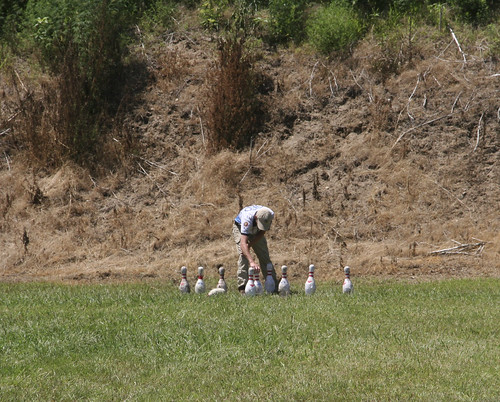
(Left: Corey setting up the 10 bowling pins on the first part of FNH USA 3-gun side match. Below: Corey placing the FNH SLP shotgun on the right side of the Mache cave and sprinting for the entrance to pick up an FNH FNX-9 pistol to shoot the pistol targets.)
I shot the 10 bowling pins placed about 50 yards with 10 rounds (none standing; no penalty). I grounded the rifle and sprinted to the next bay where I picked up the FNH SLP competition shotgun out of the barrel it was placed in. I charged the shotgun and shot the first seven steel plates on the run. Then I transitioned to the last shotgun plate on my right, blasted it, and tossed the shotgun onto the Mache cave that was built for this event. 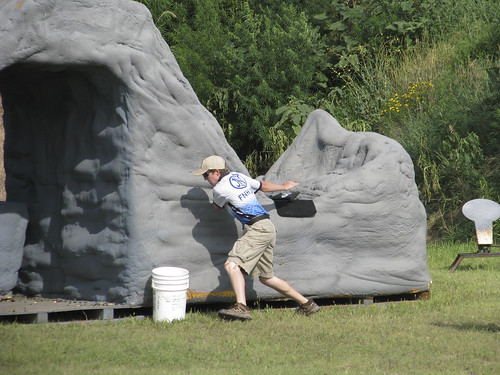 I sprinted into the cave and grabbed the 9mm FNX pistol lying on the table and shot the last five steel pepper poppers with five rounds. I finished the stage in 41.59 seconds with no penalties. At the end of the day, Tommy Thacker, pro shooter on the FNH team, showed me a list of the 200 plus shooters that had shot the stage in the last two days and their times. Out of the 200, I got 5th place. Wow, was I happy!
I sprinted into the cave and grabbed the 9mm FNX pistol lying on the table and shot the last five steel pepper poppers with five rounds. I finished the stage in 41.59 seconds with no penalties. At the end of the day, Tommy Thacker, pro shooter on the FNH team, showed me a list of the 200 plus shooters that had shot the stage in the last two days and their times. Out of the 200, I got 5th place. Wow, was I happy!
The only other side match I shot was the Hornady Cowboy Action Shooting stage. There was a .38 Special lever–action rifle, a double–barrel shotgun and a Ruger single-action revolver. I liked the cowboy action so much I shot it twice. I think my favorite part of the stage was shooting the lever-action rifle at the plate rack.
The Industry awards and dinner was a dinner for everyone in the shooting events. The Academy of Excellence, run by FMG Publications, voted for their favorite products of 2010. The winners were then revealed and given a trophy for their achievements. You can check out the winners at: www.shootingindustry.com/Pages/2010SIMasters.html
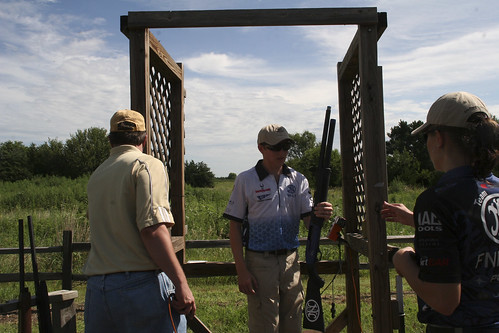 I truly treasured being at this year’s Shooting Industry Masters and shooting on the FNH pro team. I honestly felt like part of the team and want to come back next year and do it all again with the amazing ladies and gentlemen from FNH USA. I’m very happy to have been the first junior ever to have shot on a pro team. (Above: Corey hands off the FNH SLP competition shotgun to Tasha.)
I truly treasured being at this year’s Shooting Industry Masters and shooting on the FNH pro team. I honestly felt like part of the team and want to come back next year and do it all again with the amazing ladies and gentlemen from FNH USA. I’m very happy to have been the first junior ever to have shot on a pro team. (Above: Corey hands off the FNH SLP competition shotgun to Tasha.)
A special thank you goes to FNH and Junior Shooters magazine and also to FMG Publications for putting on such a fun event.
Contact Information:
-
FMG Publications: www.fmgpublications.com/
-
FNH: www.fnhusa.com
-
Grand Island Shooting Park: www.grand-island.com/index.aspx?page=44
-
National Shooting Sports Foundation: www.nsssf.com
-
Shooting Industry Masters: www.shootingindustry.com/Pages/2010SIMasters.html
-
Swarovski: www.swarovskioptik.us
-
Check out this article with more photos and a video of the event: at www.juniorshooters.net
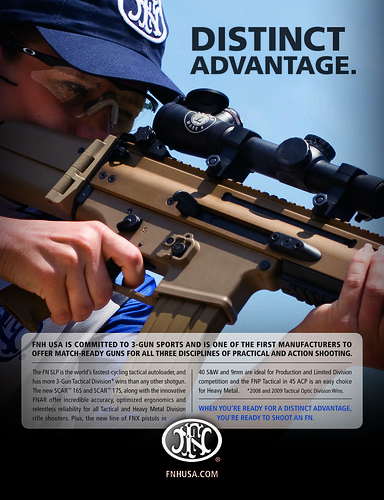 Editor’s Note 1: A junior on a shooting industry team as part of this event is a milestone in promoting the shooting sports and encouraging juniors and their families. Junior Shooters magazine thanks FNH for their support and willingness to accept a junior as part of their pro team. Note 2: Though the shooting stages portion of the Industry Masters 2010 event is made up of pistol, rifle, and shotgun stages, it is not what typically is referred to as a three-gun competition. Three-gun competitions normally have all three guns being used on almost every stage.
Editor’s Note 1: A junior on a shooting industry team as part of this event is a milestone in promoting the shooting sports and encouraging juniors and their families. Junior Shooters magazine thanks FNH for their support and willingness to accept a junior as part of their pro team. Note 2: Though the shooting stages portion of the Industry Masters 2010 event is made up of pistol, rifle, and shotgun stages, it is not what typically is referred to as a three-gun competition. Three-gun competitions normally have all three guns being used on almost every stage.
_________________

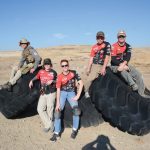
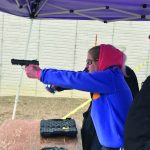
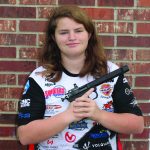
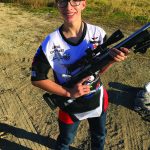

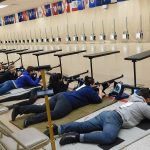
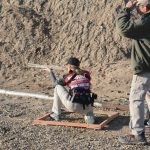
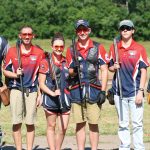
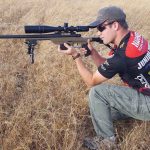
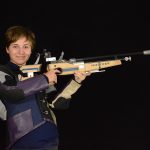
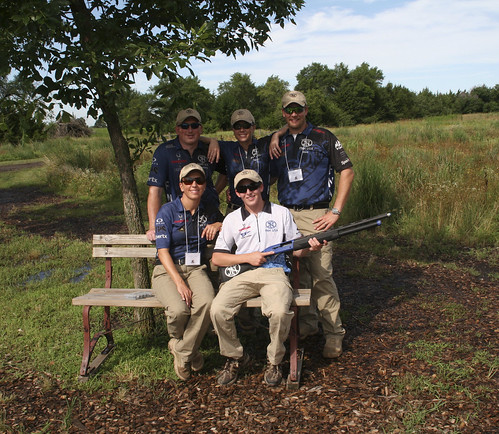
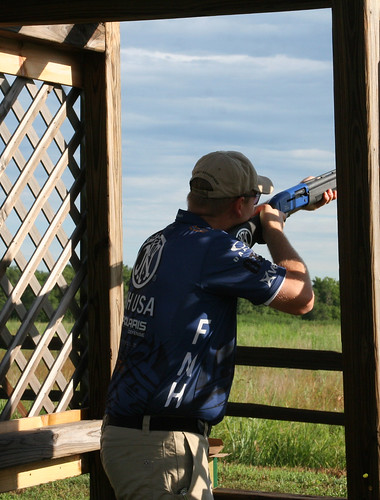
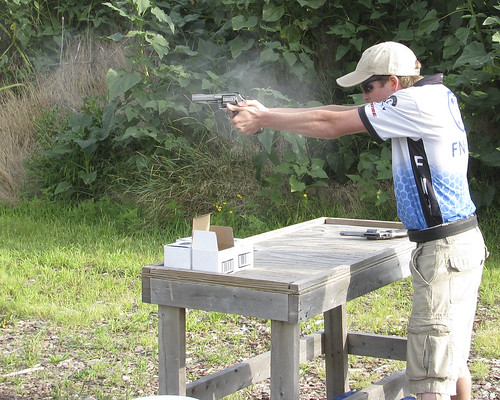
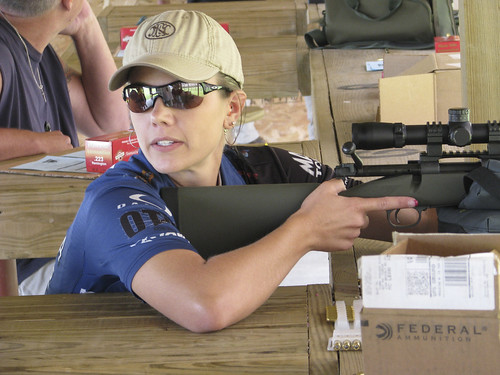
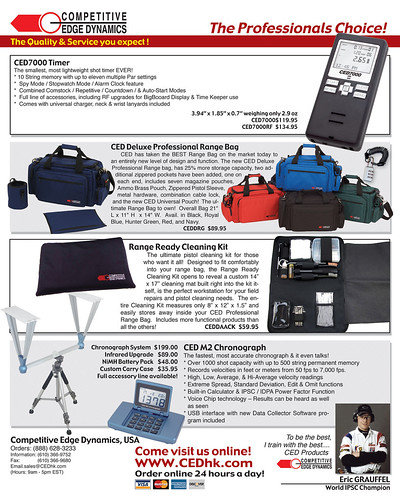
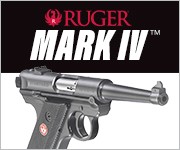
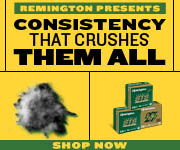
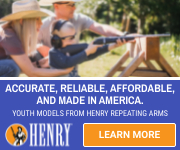
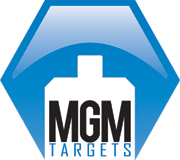
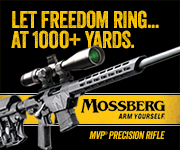
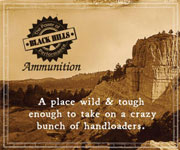
Comments